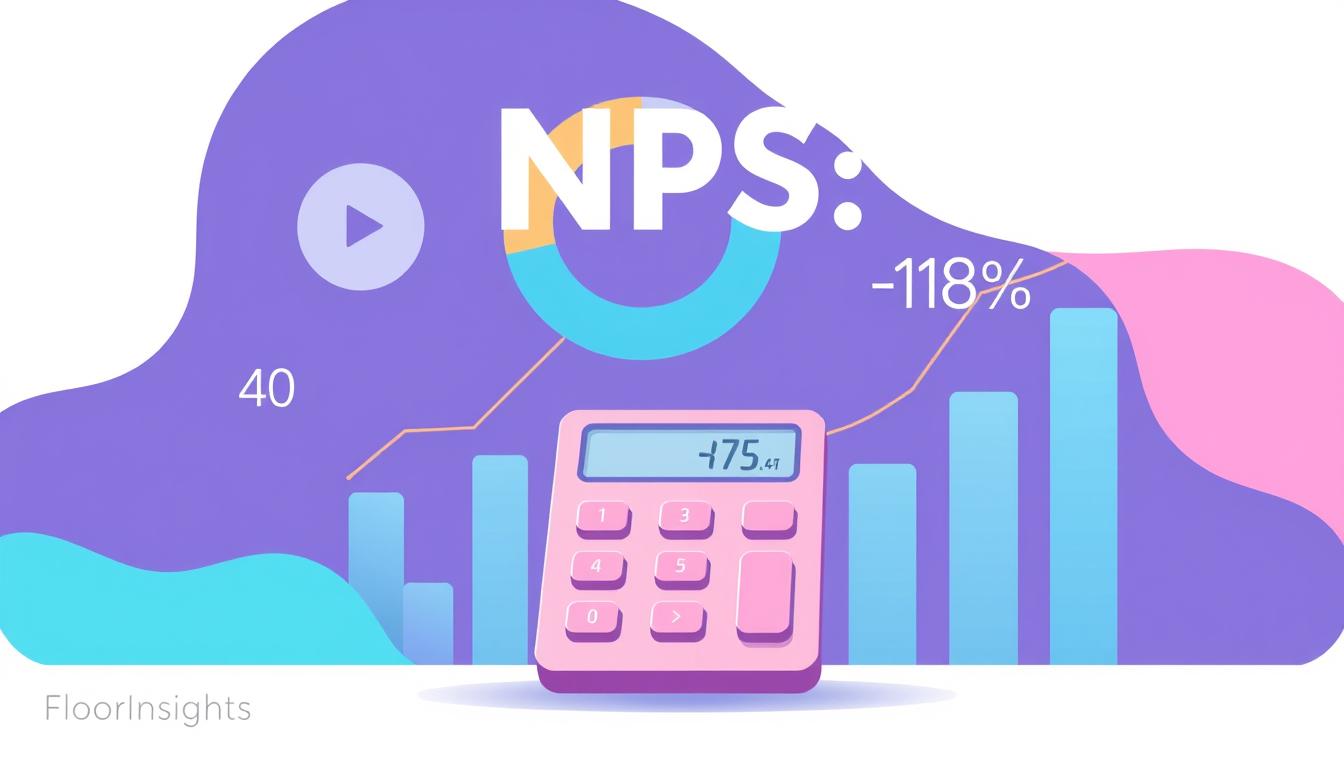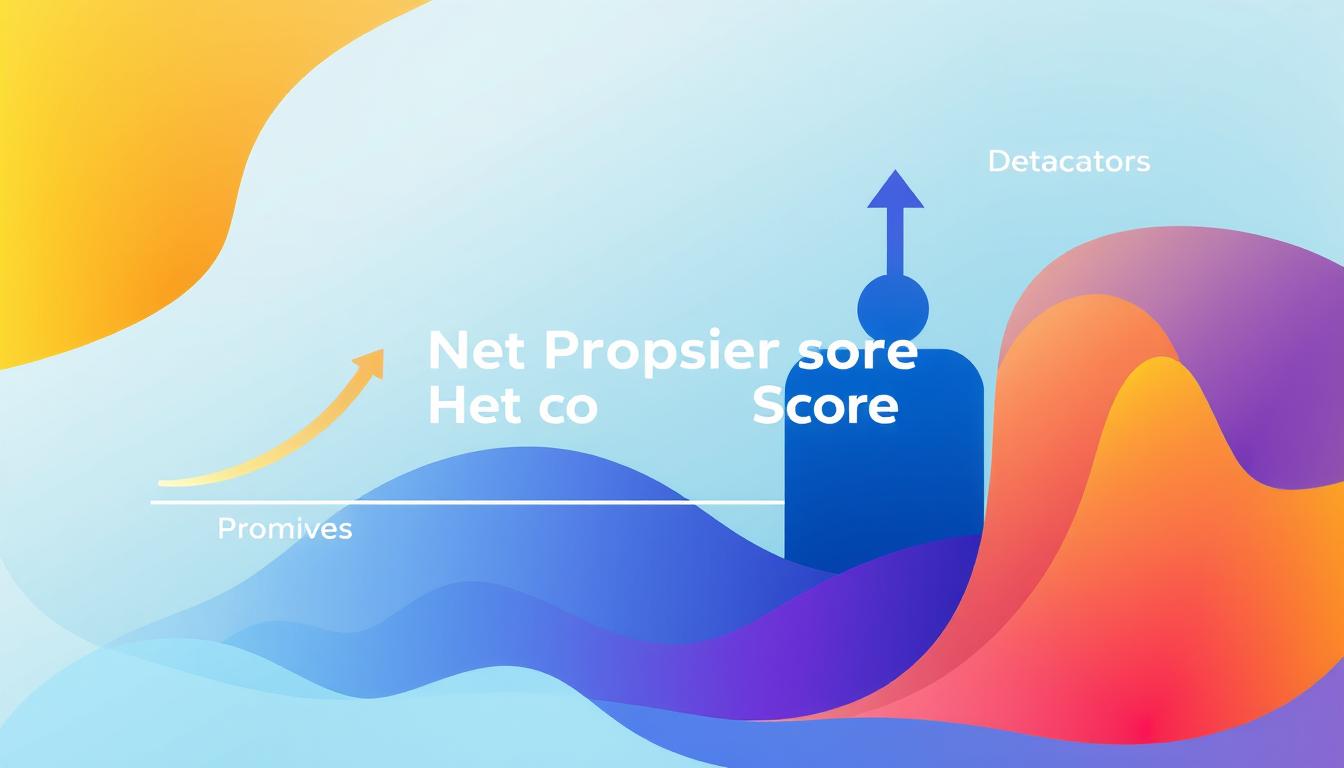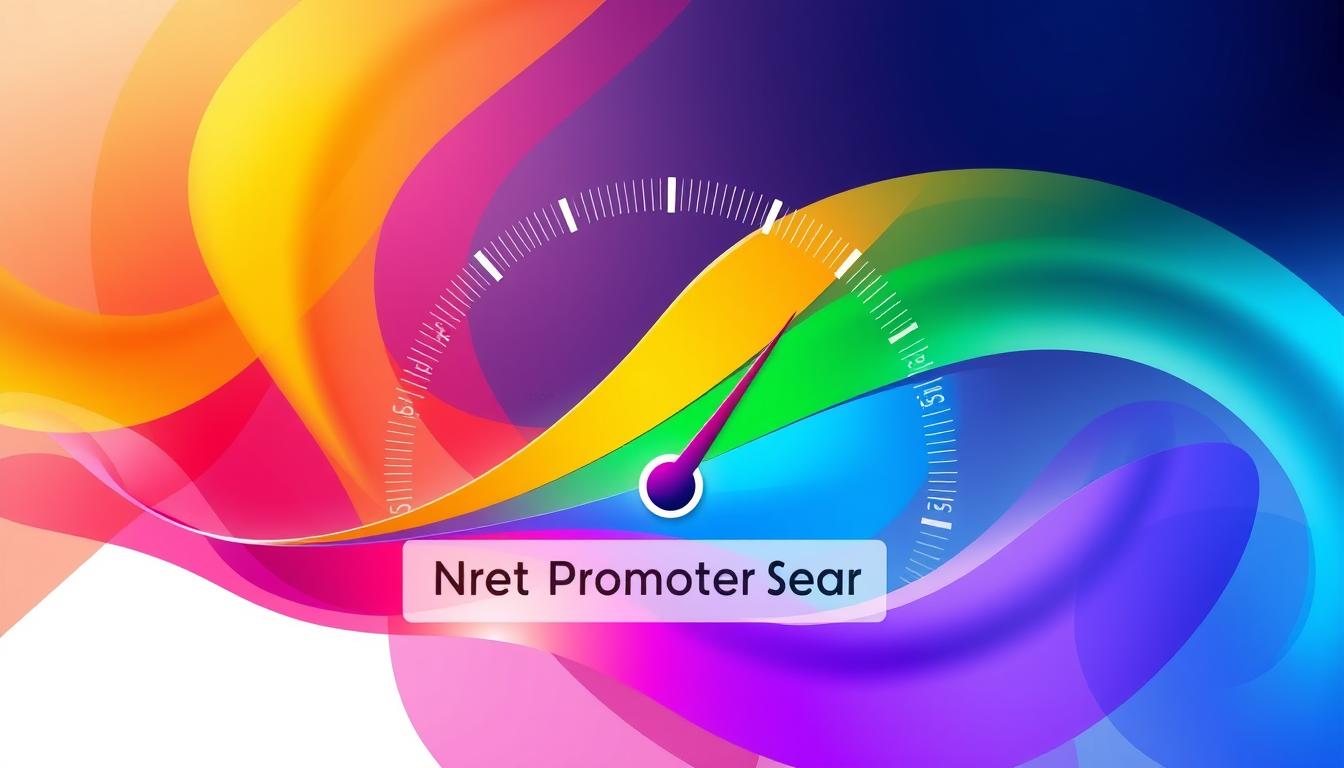As we navigate the dynamic landscape of franchise businesses in India, the significance of the Net Promoter Score (NPS) emerges as a pivotal element in refining our franchise customer experience. By effectively measuring customer loyalty and satisfaction, NPS serves as a crucial tool that influences decision-making at various management levels. Our focus on understanding the customer feedback loop allows us to harness the power of NPS for franchise businesses, empowering us to drive growth and retention amid the competitive market. Connecting customer feedback directly to our organizational strategies strengthens our brand and enhances overall performance.
Key Takeaways
- NPS is essential for measuring customer loyalty in franchises.
- Utilizing customer feedback helps drive effective strategies.
- Franchises can enhance their brand value through NPS insights.
- A strong NPS fosters growth and customer retention.
- Connecting NPS with organizational strategy is vital for success.
- Implementing effective NPS practices leads to improved customer experiences.
Understanding Customer Experience in Franchise Businesses
In franchise businesses, customer experience plays a vital role in shaping perceptions and driving long-term loyalty. Every interaction, from the initial inquiry to the post-purchase support, contributes to the overall customer experience in franchises. By understanding these interactions, we can identify opportunities to enhance customer satisfaction.
The key touchpoints in a franchise customer journey include:
- Initial Contact
- Service Interaction
- Product Quality
- Post-Purchase Support
Each phase of this journey influences franchise success. A positive customer experience fosters loyalty, leading to higher retention rates and positive word-of-mouth. In contrast, negative interactions can seriously harm a brand’s reputation.
To bolster customer satisfaction, franchises can adopt best practices such as:
- Regular Training for Staff
- Soliciting and Acting on Customer Feedback
- Personalizing the Customer Journey
- Streamlining Service Processes
By prioritizing and continuously improving the customer experience, franchises can set themselves apart in a competitive marketplace, ultimately ensuring their success and fostering enduring relationships with customers.
What is Net Promoter Score?
The Net Promoter Score (NPS) serves as a vital quantitative measure of customer loyalty within the franchise sector. Understanding its framework and significance enables businesses to harness customer feedback effectively, strengthening their operational strategies and enhancing franchise customer loyalty.
Defining the Net Promoter Score
The Net Promoter Score definition revolves around a simple yet powerful concept. An NPS survey typically asks customers to rate their likelihood of recommending a franchise on a scale from 0 to 10. Based on their responses, customers are categorized into three groups: Promoters (scores of 9-10), Passives (scores of 7-8), and Detractors (scores of 0-6). This segmentation provides critical insights into customer sentiments, enabling franchises to gauge their customer feedback metrics accurately.
Importance of NPS in Franchise Settings
The importance of NPS extends beyond mere measurement; it plays an essential role in fostering franchise customer loyalty. By leveraging NPS insights, businesses can identify areas of improvement and capture the essence of customer experiences. Regularly measuring NPS not only informs operational adjustments but also highlights the NPS significance in driving innovation and maintaining market competitiveness. Empty questions yield empty answers, and in the fast-paced world of franchises, understanding customer perspectives holds the key to sustainable success.
The Connection Between NPS and Customer Loyalty
We understand that the relationship between NPS and customer loyalty is pivotal for franchise businesses. High NPS scores often signify strong customer advocacy, which can lead to numerous advantages for franchises. Such customers are more likely to spread positive word-of-mouth, contribute to repeat purchases, and reinforce brand loyalty.
Franchise loyalty strategies can greatly benefit from insights derived from NPS findings. By evaluating and acting on these insights, franchises can enhance loyalty among their customer base. This proactive approach not only improves customer satisfaction but also fosters long-term relationships.
Consider the following table, which highlights the impact of NPS on various aspects of customer loyalty:
| NPS Score Range | Customer Advocacy Level | Impact on Loyalty |
|---|---|---|
| 0 – 6 | Detractors | Low loyalty; negative word-of-mouth |
| 7 – 8 | Passives | Moderate loyalty; potential for loss |
| 9 – 10 | Promoters | High loyalty; positive word-of-mouth and repeat purchases |
By focusing on enhancing loyalty and addressing the needs of each customer segment, franchises can turn insights from NPS surveys into actionable strategies. This alignment can transform customer experiences and solidify a brand’s position in the market, leading to sustained growth and success.
How NPS Surveys Work in Franchise Environments
We must approach NPS survey design with careful consideration, particularly in franchise contexts. Crafting effective NPS surveys requires not only clear and concise questions but also a focus on reaching diverse customer segments. Timing the survey distribution can significantly impact response rates, leading to more reliable feedback.
Designing an Effective NPS Survey
The key to an effective NPS survey lies in simplicity and clarity. We should ask a single question that captures customer sentiment, which may look something like: “On a scale from 0 to 10, how likely are you to recommend our brand to a friend or colleague?” This straightforward approach prevents confusion.
Following the primary question, we can include open-ended prompts that allow customers to share additional thoughts. These insights can enhance our understanding of customer perceptions and identify areas for improvement.
Implementing survey best practices is vital. Distributing the survey across various customer demographics and ensuring representative samples can yield more accurate franchise survey metrics. To maximize engagement, sending the survey shortly after a customer interaction is often most effective.
Key Metrics to Measure in NPS Surveys
Once we gather survey responses, analyzing NPS data is essential. The following metrics should be our primary focus:
- Overall NPS Score: This score calculates the difference between the percentage of Promoters and Detractors, providing a quick measure of customer loyalty.
- Percentage of Promoters: Understanding how many customers fall into this category helps us assess brand advocates.
- Percentage of Detractors: Knowing this number guides us on potential risks to customer retention.
- Trend Analysis: Monitoring NPS scores over time provides insights into how changes in service and product offerings impact customer loyalty.
By actively monitoring these NPS metrics, we can make informed decisions that directly enhance franchise operations and drive better customer experiences.
Integrating NPS into Franchise Customer Experience Strategies
Aligning our Net Promoter Score (NPS) initiatives with brand values fosters a seamless experience for customers across franchise locations. A strong connection between brand messaging and customer interactions fosters authenticity and trust, critical components of enduring customer relationships. This alignment emphasizes the importance of brand values integration as we craft our franchise strategy.
Aligning NPS with Brand Values
To ensure effective NPS alignment, we must first establish what truly represents our brand. Consistent communication of these values across all touchpoints solidifies our identity and sets clear expectations for our customers. By embedding our NPS efforts within these values, we cultivate a unified experience that resonates with our clientele.
Utilizing NPS Feedback for Improvement
NPS feedback utilization serves as a crucial tool in enhancing customer experiences. By analyzing customer insights, we can pinpoint opportunities for franchise improvement. Our approach should include:
- Understanding feedback trends to identify common concerns.
- Developing targeted action plans to address specific issues raised by customers.
- Monitoring the impact of changes to ensure we effectively enhance service delivery and product offerings.

Through systematic application of customer insights gleaned from NPS, we empower our franchises to implement meaningful improvements that align with our brand values, ultimately reinforcing our commitment to providing exceptional customer experiences.
| Feedback Category | Improvement Action | Expected Outcome |
|---|---|---|
| Service Quality | Enhance training programs for staff | Increased customer satisfaction scores |
| Product Availability | Optimize inventory management | Better product accessibility for customers |
| Cleanliness | Establish regular cleaning schedules | Improved overall customer access and satisfaction |
Benefits of Using NPS for Franchise Businesses
Utilizing the Net Promoter Score (NPS) presents significant benefits for franchise businesses striving to enhance their customer experience. One primary advantage is the improved customer engagement that arises from effectively measuring satisfaction levels. By gaining valuable customer insights, franchises can tailor their services, ensuring they meet and often exceed expectations.
Emphasizing the benefits of NPS, franchises can develop informed marketing strategies that drive franchise growth. Understanding what drives customer loyalty allows businesses to craft targeted campaigns, improving both retention and acquisition of customers.
Additionally, NPS enables franchises to benchmark performance over time. This continuous measurement process helps franchises track progress and evolve in alignment with customer feedback. We can view this structured approach in the following table:
| Benefit | Description |
|---|---|
| Enhanced Customer Engagement | Prioritizes the customer voice, leading to improved satisfaction and loyalty. |
| Informed Marketing Strategies | Utilizes customer insights to tailor marketing efforts, boosting success rates. |
| Benchmarking Performance | Allows franchises to track their progress and adapt strategies over time. |
| Increased Profitability | Through improved customer satisfaction and loyalty, financial performance enhances. |
In essence, implementing NPS not only streamlines decision-making but also contributes to significant franchise growth by leveraging customer insights effectively. The ability to respond to customer feedback fosters a culture of continuous improvement within the franchise network, ultimately leading to long-lasting success.
Challenges of Implementing NPS in Franchises
Implementing NPS within franchise systems presents distinctive challenges. Understanding these NPS implementation challenges enables us to refine our strategies for greater effectiveness. By identifying common pitfalls in NPS, we can mitigate risks and enhance our approach to customer satisfaction and loyalty.
Common Pitfalls to Avoid
Franchises often encounter several key pitfalls when attempting to implement NPS. These include:
- Inadequate survey distribution: Failing to reach the intended audience results in skewed feedback.
- Lack of analysis: Not thoroughly examining NPS results can lead to missed opportunities for improvement.
- Ignoring customer feedback: When franchises do not act on insights gained from NPS, they might repeat franchise mistakes and alienate customers.
Overcoming these challenges necessitates a comprehensive approach to collect and analyze data actively. Strategies such as refining the distribution process and prioritizing data analysis play crucial roles in successful NPS initiatives.
Overcoming Resistance to Change
Resistance to NPS often arises among franchisees, complicating the implementation process. Addressing this resistance requires effective change management in franchises. Key strategies include:
- Open communication: Encouraging transparent discussions fosters trust and alleviates concerns.
- Highlighting value: Demonstrating how NPS can lead to tangible benefits helps gain buy-in.
- Providing training: Ensuring franchisees are well-equipped to understand and utilize NPS effectively mitigates anxiety over new systems.
By embracing these approaches, franchises can better navigate resistance to NPS and foster a culture receptive to ongoing improvement and adaptation. Implementing NPS effectively positions franchises for enhanced customer loyalty and long-term success.
Real-World Examples of Successful NPS Implementation
In exploring successful NPS cases, we observe how various franchises have transformed their customer experience by effectively utilizing feedback from NPS surveys. These NPS success stories highlight strategies that have led to enhanced loyalty and an increase in revenue.
One notable franchise example is Starbucks. The coffee giant utilizes NPS to gather customer feedback on their service and offerings. By implementing changes based on customer suggestions, they have refined their menu and improved overall service quality, leading to significant growth in customer satisfaction and sales.
Another franchise, Subway, adopted NPS to better understand their patrons’ preferences. The feedback received allowed them to adjust store layouts and menu items, which in turn contributed to a remarkable increase in foot traffic and customer retention. This is a prime illustration of how using customer insights can foster brand loyalty and drive growth.
Below is a table summarizing additional successful NPS cases within the franchise sector:
| Franchise | Implementation Strategy | Outcome |
|---|---|---|
| McDonald’s | Feedback on menu options | Increased diverse offerings, leading to higher customer retention |
| Domino’s | Tracking delivery service satisfaction | Improved delivery times and increased customer recommendations |
| Marriott | Enhanced guest experience through feedback | Significant rise in customer loyalty and repeat bookings |
These examples illustrate the profound impact that successful NPS implementation can have on customer experience in franchises. By analyzing the feedback from customers, these brands have not only strengthened their relationship with patrons but also positioned themselves for future success in a competitive market.
Best Practices for NPS Measurement
In our pursuit of enhancing customer experience through the Net Promoter Score (NPS), we recognize the importance of using the right tools and practices for effective measurement. Selecting NPS software that fits the unique needs of franchise businesses is crucial. Our focus will be on the aspects of choosing suitable NPS tools and methods for analyzing NPS results effectively.
Choosing the Right Net Promoter Score Software
When selecting NPS software, we must consider multiple factors to ensure it aligns with our franchise data analysis needs. Key features to evaluate include:
- Ease of Use: The software should be user-friendly, allowing team members to navigate the platform effortlessly.
- Integration Capabilities: It should easily integrate with our existing systems, enhancing the efficiency of our operational processes.
- Scalability: As our franchise expands, software should adapt to increased data volume without compromising performance.
- Customization: The ability to tailor surveys to align with our brand and specific customer segments is essential.
Analyzing NPS Results Effectively
Effective analysis of NPS results plays a vital role in understanding customer sentiment and driving improvements. The following practices can guide us in analyzing NPS data interpretation:
- Understand the Context: Analyze scores in relation to recent company changes or external market factors for relevant insights.
- Identify Trends: Look for patterns over time to spot areas for enhancement or potential issues in customer experience.
- Develop Actionable Plans: Transform insights into concrete action plans that address any identified challenges.
- Continuously Refine the Process: Regularly revisit our NPS approach to ensure it remains aligned with business objectives and customer expectations.
Conclusion
In summary, our exploration of the Net Promoter Score (NPS) highlights its critical role in strengthening franchise customer experience strategies. Through effective use of NPS, we can assess customer loyalty and make strategic decisions that align closely with our growth objectives as franchise owners. This franchise customer experience summary underscores the importance of accurately measuring customer sentiment to drive meaningful enhancements in service.
A commitment to leveraging customer feedback through NPS not only cultivates better relationships with our customers but also supports sustainable business success. By integrating these insights into our franchise strategy, we position ourselves to meet customer expectations consistently and innovate in ways that resonate deeply with our audience.
Ultimately, the importance of NPS in the franchise landscape cannot be overstated. It serves as a dynamic tool that equips us to respond proactively to customer needs, fostering loyalty and ensuring our franchises thrive in an increasingly competitive marketplace.
FAQ
What is the Net Promoter Score (NPS)?
The Net Promoter Score (NPS) is a metric that measures customer loyalty and satisfaction based on their likelihood to recommend a brand to others. It is typically calculated using a single-question survey that asks customers to rate their probability of recommending a franchise on a scale from 0 to 10.
How do we calculate NPS?
To calculate NPS, we subtract the percentage of Detractors (score 0-6) from the percentage of Promoters (score 9-10). The resulting score can range from -100 to +100, providing insight into overall customer sentiment.
Why is NPS important for franchise businesses?
NPS is vital for franchise businesses as it provides a quantitative measure of customer loyalty. Understanding NPS helps us enhance franchise customer experience strategies, fostering brand loyalty and encouraging repeat business.
How can we implement an NPS survey effectively?
Effective NPS surveys should include a clear, concise question, be distributed evenly across diverse customer segments, and be timed to maximize responses. Regularly gathering feedback through these surveys enables us to make informed adjustments to our customer experience strategies.
What are the key metrics we should focus on in NPS surveys?
The key metrics to measure in NPS surveys include the overall NPS score, the percentage of Promoters and Detractors, and tracking trends over time. These metrics provide valuable insights for improving our franchise’s customer engagement and loyalty.
How can we utilize NPS feedback to improve our franchise?
We can utilize NPS feedback by analyzing customer sentiments and developing targeted action plans based on their insights. This approach allows us to drive meaningful changes in service delivery and product offerings, enhancing overall customer satisfaction.
What are some common challenges when implementing NPS in franchises?
Common challenges include inadequate survey distribution, failure to analyze results effectively, and not acting on customer feedback. Awareness of these pitfalls can help us implement more successful NPS initiatives.






